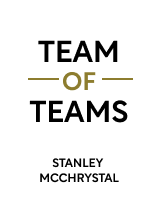

This article is an excerpt from the Shortform book guide to "Team of Teams" by Stanley McChrystal. Shortform has the world's best summaries and analyses of books you should be reading.
Like this article? Sign up for a free trial here .
What is the difference between complex vs complicated systems? How does the complexity of a system’s structure affect predictions about its future behavior?
Systems and the environments in which they operate can be either complicated or complex. The main difference between complex vs complicated systems is that with the former, it is possible to extrapolate the outcomes if the starting conditions are known, whereas, with the latter, the outcomes are impossible to predict.
Keep reading to understand the difference between complex vs complicated systems.
Complex vs Complicated Systems: What’s the Difference?
Complicated systems and problems are those that require effort to sort out, but that ultimately are understandable and predictable. For example, engines are complicated, but with study, you can see how the parts connect and behave, and you can predict what will happen if you change a part.
In contrast, complex systems are nonlinear with infinite components and interactions that are enabled and speeded up by global technology. A key feature of these systems is that small events can have ripple effects that build to an outcome no one could have imagined. An example is the Tunisian fruit vendor’s act of self-immolation in 2010 that launched the Arab Stpring protests.
Global connectedness generated these far-reaching effects because the man’s cousin videoed his act and posted it on YouTube. Other protests erupted and videos of those events were posted. Soon Arabs everywhere took to the streets and within three months, the Arab Spring had undermined the governments of Egypt, Libya, and Syria. No government responded effectively to the chain reaction because there was no way to predict it.

———End of Preview———
Like what you just read? Read the rest of the world's best book summary and analysis of Stanley McChrystal's "Team of Teams" at Shortform .
Here's what you'll find in our full Team of Teams summary :
- How General Stanley McChrystal transformed the U.S. Joint Special Operations Task Force
- What teams that operate well can offer to an organization
- How the team of teams organizational model helped bring down a major Al Qaeda leader






